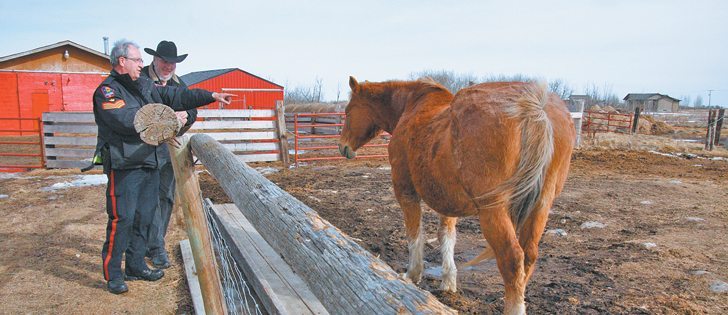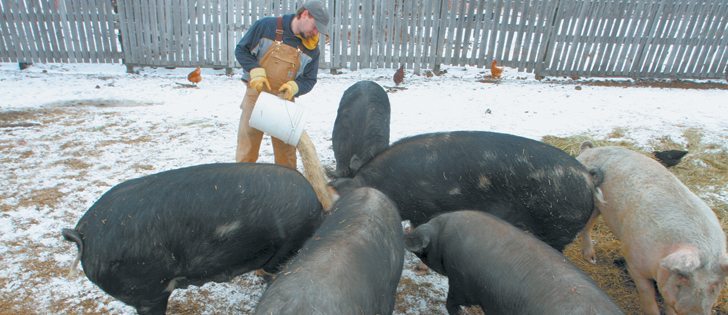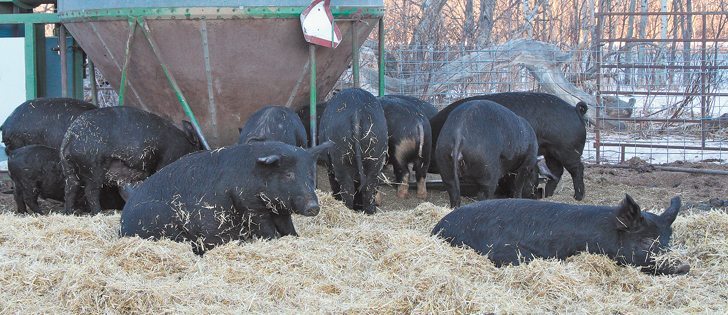CRANBROOK, B.C. — Rod and Mal Paterson are counting on South African-Canadians like themselves who crave a taste of home.
Biltong Canada, their Cranbrook, B.C., company, cuts, marinates and dries beef using a recipe that dates back to the 1600s.
“We’re not just selling food but selling nostalgia, home and life as it used to be,” said Rod.
Unlike jerky products that are generally derived from smoked South American meat, Biltong, which translates as a slice of meat, is made of prime cuts of Alberta beef such as eye of round and inside round.
Read Also

Potato farm requires year-round management
The most recent Open Farm Day in Alberta showcased agricultural producers across the province educating the general public about the process that is required is to get food to their table.
Beef is cut and marinated in salt, vinegar and natural spices and then air dried.
“There’s no Canadian food that comes close to it. It’s what South Africans grow up eating,” said Mal, noting it is a favourite at movies and rugby games and on road trips.
The Patersons sell their products, which also include coiled South African boerewors (farmers sausage), droewors (dried sausage) and flavoured mustards at a farmers’ market, trade shows and online.
They use food sampling, athletic sponsorships and taste of Africa parties to familiarize consumers with the unique flavours.
“Nothing sells a product like enthusiasm and passion,” said Rod, who noted that sales have doubled each year since the family business started in 2006.
While expatriates are a big market, the Patersons’ customers also include hunters, hikers, athletes, tourists and people seeking new flavours. Celiacs are attracted by the product’s gluten-free status.
The Patersons also see potential in supplying the armed forces, international space program, search and rescue squads and schools.
“It’s perfect for that application.… You put it in the pocket and go,” said Mal.
The Patersons, with their three children, chose Cranbrook because of its climate, mountain setting and smaller size, feeling it would help them adapt more quickly and provide a safe home for their three children.
“We don’t regret the decision. It was a great place to become Canadian,” said Rod.
They left behind a volatile homeland, where 2,000 farmers were murdered in the four years following the end of apartheid.
The former cattle and sheep ranchers and agritourism operators from Waterval Boven arrived in British Columbia in a recession in 2003 and worked at odd jobs. Many years would pass before they were able to sell their farm, and then for only a fraction of its value.
They lived on their wages and savings, expanding the company’s processing facilities themselves “inch by inch,” paying cash for about $100,000 worth of equipment.
“We had to be careful with every penny,” said Rod.
Mal and Rod have worked for Biltong full time since 2009, with Rod handling the production and Mal overseeing marketing. The children also helped and took food safety courses.
The family had experience in marketing but received a boost navigating through a plethora of business challenges in Canada from B.C.’s Small Scale Food Processors Association.
The Patersons received $15,000 under the Food Safety Systems Implementation (Processors) Program to upgrade equipment for their provincially inspected business.
Candice Appleby, the association’s executive director, said her group offers support to members in marketing, education, networking and advocacy.
“For up and coming companies, it helps them jump a lot of hurdles better than on their own,” she said.
Its food directory features more than 200 companies and 900 products, which it promotes to wholesalers and buyers at trade shows.
The association also represents small producer-processors on international standards boards.
An online network allows members to talk to one another about issues of common concern, such as buying cabbage, nutrition labelling software and staying abreast of trends, regulatory issues and consumer demands.
“It lessens their time doing things so they don’t have to reinvent the wheel every time,” said Appleby.

















